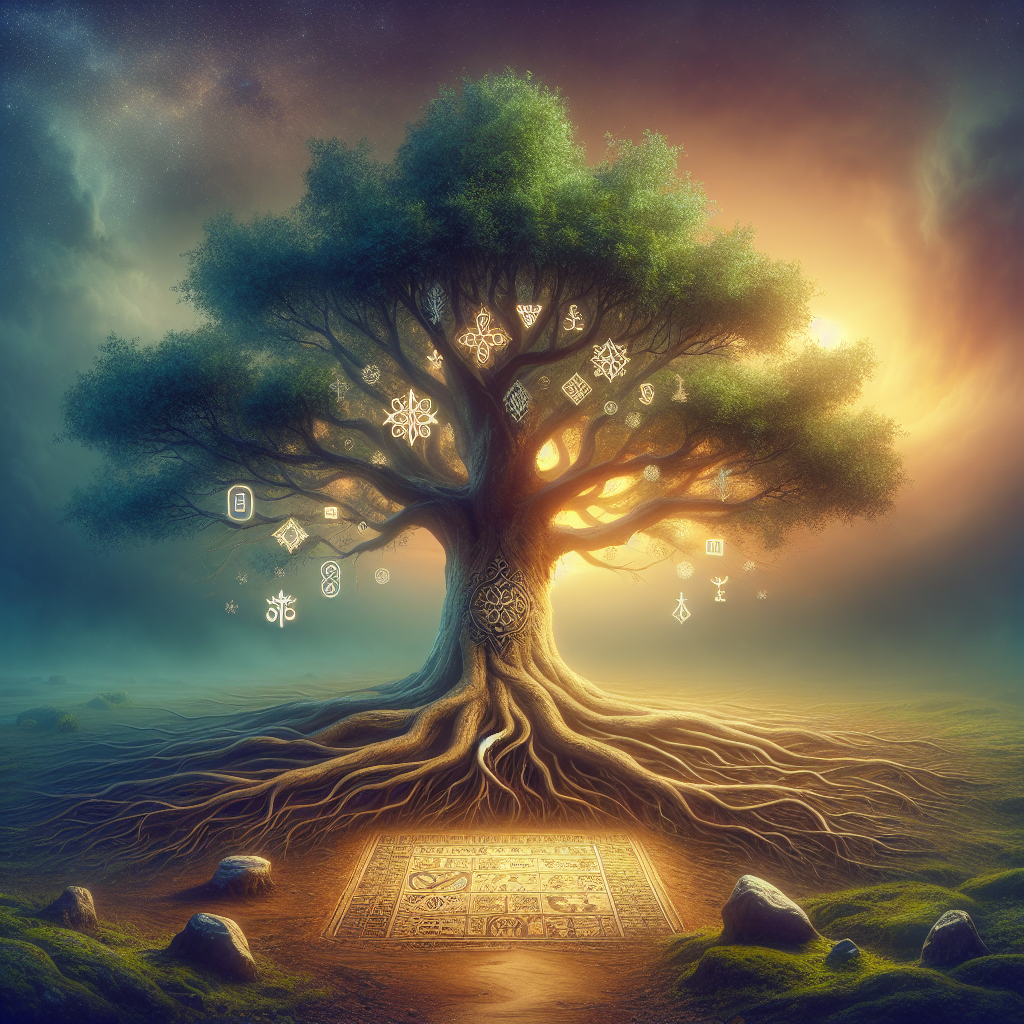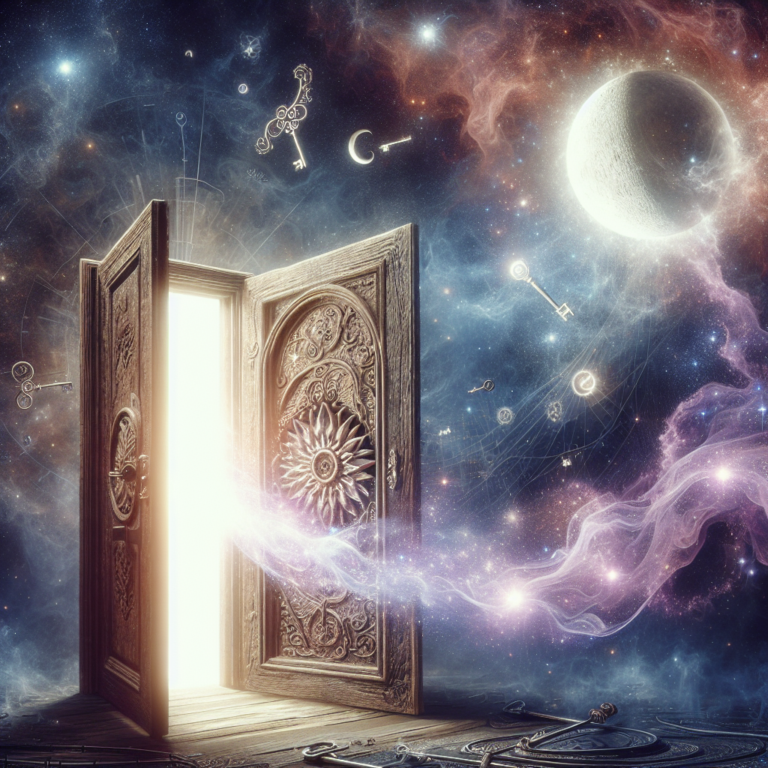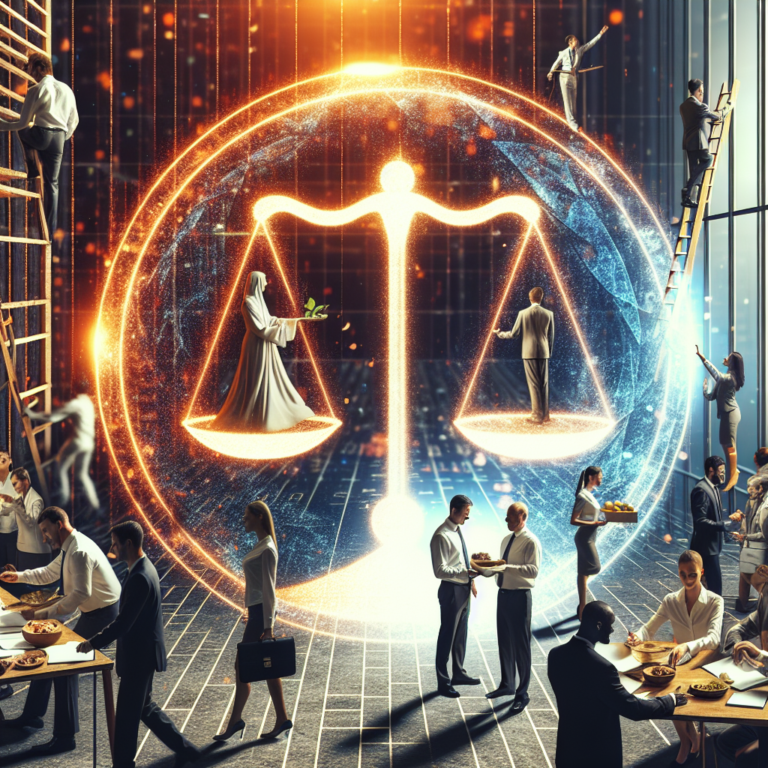The concept of reincarnation, the cycle in which a soul experiences multiple lifetimes through various forms, and karma, the universal law of cause and effect, are fundamental tenets in many spiritual philosophies, particularly in Hinduism and Buddhism. Together, they weave a rich narrative about existence, morality, and the profound ties between our past actions and current lives.
Understanding Reincarnation
Reincarnation is derived from the Latin word "reincarnatio," which means "to be made flesh again." According to this belief system, an individual’s soul undergoes a journey through countless lifetime experiences. Each life presents an opportunity for growth and learning, with the ultimate aim of achieving spiritual enlightenment and liberation from the cycle of rebirth (samsara).
In Hinduism, the atman (soul) is believed to be eternal, while the physical body is temporary. Upon the death of the body, the atman leaves and enters a new form based on the accumulated karma from previous lives. Buddhism adopts a slightly different view, focusing on the concept of anatta or "non-self," suggesting that what reincarnates is not a permanent soul but rather a collection of experiences, memories, and consciousness that are impermanent and always changing.
The Role of Karma
Karma, a Sanskrit term that translates to "action" or "deed," is the mechanism that drives the cycle of reincarnation. It embodies the principle of cause and effect, positing that every action has consequences, whether immediate or far-reaching. Good actions contribute to positive outcomes in this life or the next, while negative actions foster adverse results.
Karma can be understood through three types:
Sanchita Karma: This refers to the accumulated karma from all past lives. It’s like a bank account of karmic balance, influencing the circumstances you face in your present life.
Prarabdha Karma: This is the portion of karma that is currently manifesting in an individual’s life. It’s what you are experiencing now, shaped by your past actions and decisions.
- Kriyamana Karma: This encompasses the actions performed in the present that will affect your future experiences and the conditions of your subsequent lives.
Thus, karma not only shapes our present experiences but also determines what we can expect in future reincarnations.
How Past Lives Influence the Present
The interplay between past lives and the current existence manifests itself in various forms, providing profound insights into our behavior, relationships, and personal challenges.
Situational Patterns
Many individuals find themselves in recurring patterns or situations that seem inescapable. For instance, someone may struggle with relationships, experiencing repeated heartbreaks or betrayals. This could be an indication of unresolved issues stemming from past lives. According to reincarnation beliefs, one could be working through karmic debts that affect their current life path.
Innate Skills and Talents
Some people exhibit extraordinary talents or interests in specific areas with no apparent reason. These gifts could be remnants of skills honed in previous lives. For example, a child prodigy in music or mathematics might possess the memory or learning capacity from a past existence where they were immersed in those disciplines.
Fears and Phobias
Phobias are often cited as manifestations of unresolved karmic experiences from previous lives. For instance, a person with an inexplicable fear of water might have drowned in a past life. These fears may arise as a way for the individual to confront and heal from past traumas.
Spiritual Growth and Lessons
The core purpose of reincarnation and the lessons associated with it is spiritual evolution. This progression is often facilitated by challenges and adversities faced in life. Our past life experiences shape our present by presenting us with opportunities to overcome obstacles, learn forgiveness, cultivate compassion, and develop a better understanding of ourselves and our relationships with others.
The Path Toward Understanding
The journey of understanding reincarnation and karma is deeply personal and can be explored through various practices:
Meditation and Mindfulness: These practices encourage self-reflection and offer insight into one’s behaviors and thought patterns, allowing individuals to understand how past choices influence their current state.
Regression Therapy: Past-life regression therapy can help individuals explore memories from previous lifetimes, shedding light on persistent issues or fears in the present life.
- Holistic Practices: Engaging in holistic practices such as yoga can enhance one’s awareness of inner thoughts and behaviors, facilitating deeper connections with past life experiences.
Cultural Perspectives
Views on reincarnation and karma vary internationally. In Western societies, particularly, beliefs in reincarnation have become more mainstream, influenced by various philosophies and New Age thought. Many people, regardless of religious background, explore these concepts as a way to find meaning in their lives.
Conversely, in predominantly Hindu and Buddhist societies, these teachings are integrated into daily life and ethical frameworks. They shape moral decisions and community relations, providing a platform for understanding one’s role in the broader universe.
Conclusion
Reincarnation and karma create a captivating narrative that transcends time and space, emphasizing the interconnectedness of all beings. Understanding how past lives shape our present can foster a sense of responsibility and awareness. It encourages us to reflect upon our actions and their consequences, ultimately guiding us toward personal growth and spiritual awakening.
FAQs
Q1: What is reincarnation?
Reincarnation is the belief that the soul is born into a new body after death, continuing a cycle of life, death, and rebirth across multiple lifetimes.
Q2: What is karma?
Karma is the principle of cause and effect where every action has corresponding consequences, influencing one’s future experiences and reincarnations.
Q3: How do past lives affect our current lives?
Past lives can manifest in recurring patterns, talents, fears, and personal challenges in our current existence, often providing lessons for personal growth.
Q4: Can we remember our past lives?
Some people claim to remember past lives through spontaneous recollections, dreams, or through past-life regression therapy, although such experiences can vary widely.
Q5: Are reincarnation and karma accepted by all religions?
No, beliefs in reincarnation and karma primarily stem from Eastern religions like Hinduism and Buddhism. Many Western religions, such as Christianity and Islam, do not endorse these concepts.
It seems you’ve entered “Prompt,” but I’m not sure what specific prompt or topic you’re referring to. Could you please provide more details or clarify what you would like assistance with? Whether it’s writing, brainstorming, or something else, I’m here to help!, #Reincarnation #Karma #Lives #Shape #Present, #Reincarnation #Karma #Lives #Shape #Present, 1736120149, reincarnation-and-karma-how-past-lives-shape-our-present





